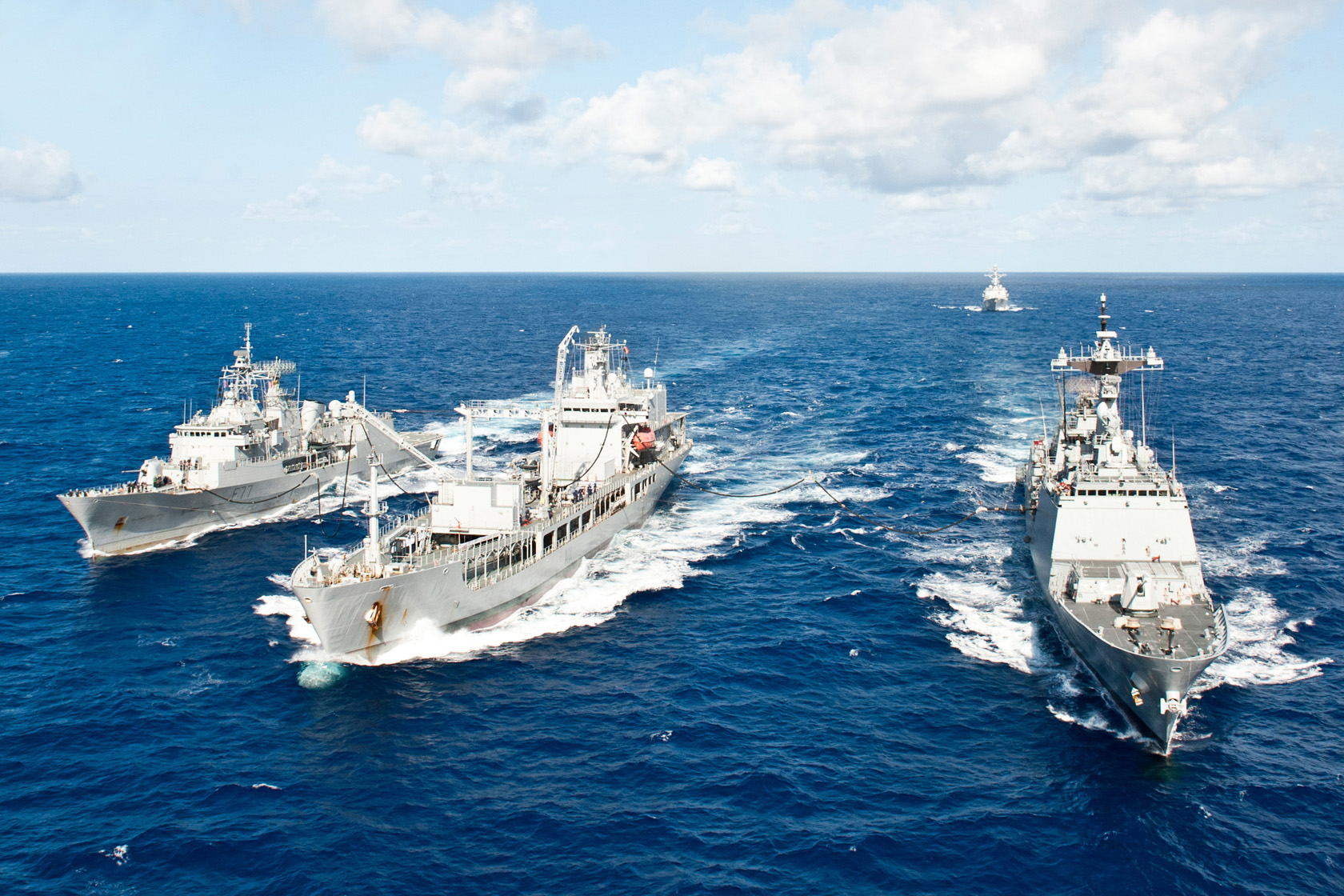The newly announced partnership between the US, the UK and Australia called AUSUK definitely has the aim of blocking China at sea — however, unless the trio opts for open military confrontation, the growing trade between Beijing and the rest of Asia will not be affected, analysts told Sputnik.
On Wednesday evening, US President Joe Biden together with Australian Prime Minister Scott Morrison and UK Prime Minister Boris Johnson declared the formation of the new AUKUS defense and security partnership, “which will protect and defend … shared interests in the Indo-Pacific.”
The first initiative under the AUKUS alliance will be the creation of nuclear-powered submarine technology for the Royal Australian Navy, so the Australian government decided to abandon the $66-billion agreement reached with the French company of Naval Group for the construction of diesel-electric submarines.
The Chinese Embassy in Washington, in response to the formation of the AUKUS partnership, urged the countries to get rid of the Cold War mentality and to refrain from creating alliances against others.
“This proves once again that these countries are using nuclear exports as a tool for geopolitical games,” the ministry said, adding that any regional mechanism “should not harm interests of third countries.”

REAL DETERRENCE
US Army Colonel Douglas Macgregor, who served as an adviser to the Trump administration’s Acting Pentagon chief, believes that the arrangement is quite real because its basis is “cultural, economic and strategic.”
“The unified effort of the expanding submarine fleets is a profoundly important development. China’s missile defenses can cope with any challenge on the surface, but they are powerless to cope with modern nuclear-powered subs in deep water. This raises yet again the specter of a truly effective blockade at sea,” he told Sputnik.
To cut the story short, this action by the three English-speaking countries represents “real deterrence,” he stated.
“Still, none of this should make any difference to RCEP [Regional Comprehensive Economic Partnership] and China’s growing trade with the rest of Asia. Unless China or the US, U.K. and Australia opt for a military confrontation, the trade will continue,” he stated.
When asked how effective the initiative will be in containing China, former CIA station chief and founding member of the Veteran Intelligence Professionals for Sanity (VIPS) group Philip Giraldi told Sputnik that the agreement is totally misplaced since Chinese power is not rooted in the military.
“China is flat-out out-competing us and our allies on the world economic stage, which is where its strength comes from. Once upon a time, the United States excelled at performing competitively, which is how it succeeded Britain as the great global power, but alas, no longer,” he told Sputnik.
EXTREMELY DANGEROUS
The newly announced alliance an extremely dangerous development, historian and political commentator Dan Lazare told Sputnik.
“Imagine if Russia, China, and Mexico had entered into an anti-US alliance with the first two vowing to equip the third with the latest nuclear military technology. The US would see it as nothing less than a casus belli and would begin preparing for a showdown. That is precisely what I expect China to do now that it sees US-led forces as closing in for the kill,” he explained.
He recalled that China, as an emerging great power, claims the same suzerainty that the US claims over its own regional waters.
“Yet as the global hegemon, that’s the one concession the US can’t afford to grant. Instead, it claims the same right to supervise the South China Sea as, say, the Caribbean because that’s what being the sole remaining superpower means, i.e. the ultimate global arbiter of what’s permissible and what’s not,” he said.
Since China can’t possibly accede to such a deal, some kind of confrontation seems “inevitable,” according to Lazare.
“China will have the immediate military advantage since it will take place in its own backyard. But the US has immense global powers in reserve, so its position should not be underestimated,” he said.
Speaking about the reactions of other nations in the region, Lazare replied that they are likely to engage in the usual short-sighted calculus.
“India cannot be entirely displeased since it will allow it to step into a double role as intermediary in the western Pacific and dominant power over the entire Indian Ocean. Since the US needs its help more than ever, it will likely go along. Vietnam, the Philippines, and Indonesia may not be displeased either since the world’s growing focus on the region means that their regional leverage can only grow,” he said.
Japan, however, must be nervous since it is in the line of fire, while South Korea is no doubt aware that political tensions on the peninsula can only grow, he suggested.
MORE OFFENSIVE THAN DEFENSIVE
The position of the US government toward China looks to be “more offensive than defensive,” veteran Pentagon analyst Chuck Spinney told Sputnik.
“It is viewed by the AF [air force] and Navy as an “anti-access/area-denial problem” (to use their term). This problem is one of impeding the free flow of our forces toward China into and through the East and South China Seas. This is a most convenient strategy for justifying business-as-usual huge defense budgets, laden with high-cost cold-war inspired weapons,” he explained.
But China’s major strategic problem is maintaining access to the world, he believes. So it is easy to bottle up China’s seaborne trade with the world by using air and sea interdiction.
“Moreover, as far as ‘containing’ China is concerned, let us not forget that 90% of all China’s trade is by sea (mostly with the US and its allies in Europe) and therefore China is highly vulnerable to disruption (note the arrows in this map are only for oil and gas),” he concluded.
Meanwhile, David Swanson, the executive director of WorldBeyondWar.org and campaign coordinator for RootsAction.org, told Sputnik that he also believes that the partnership is a dangerous provocation and resembles “offense disguised as defense.”
“Australia should be ashamed of acting as an obedient dog of war, as should the UK, and the US should try just once to end a war without increasing military spending, spreading empire, and seeking out new wars,” he added




